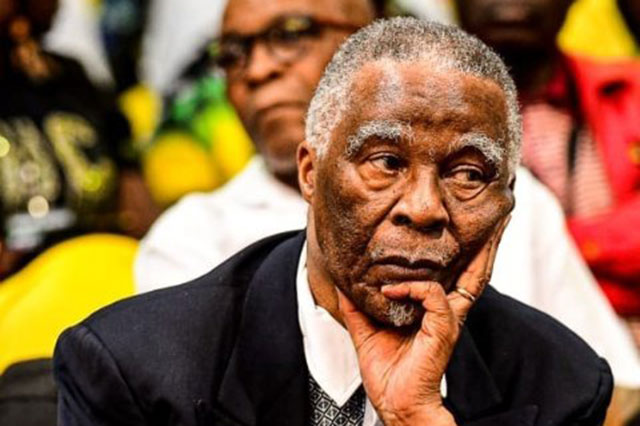Cape Town – Lukhanyo Calata, son of slain anti-apartheid activist Fort Calata, has reportedly criticised former president Thabo Mbeki for trying to insert himself into a legal case brought by victims of apartheid-era crimes.
According to The Citizen, Mbeki and ex-justice minister Brigitte Mabandla have applied to join the case as respondents, arguing that the legal action poses a threat to their reputations and could leave them personally liable.
But Calata accused Mbeki of attempting to protect his legacy rather than seeking justice for families still awaiting accountability.
“I reject the claim that they have a direct or substantial interest in this matter, as no relief is sought against them personally. Their intervention appears to be an attempt to shield their reputations,” City Press, quoted him as saying.
Commission of inquiry
The case, brought by 25 families and survivors, challenges the government’s alleged failure to prosecute apartheid crimes recommended by the Truth and Reconciliation Commission (TRC).
President Cyril Ramaphosa has since launched a commission of inquiry to investigate these long-standing delays.
Speaking to the media on Thursday in Middelburg, Mpumalanga, after May Day celebrations, the president emphasised the government’s aim to help victims’ families find closure and understand the reasons behind the slow progress in handling these cases.
“We have established that commission of inquiry and I’ll soon be announcing the names of those who are going to lead the commission. And this is as a result of the continued pain and suffering that those who suffered through the atrocities of the apartheid government want to find closure because people were killed, people were maimed and injured,” the president said.
[WATCH] ANC president Cyril Ramaphosa says the establishment of the commission of inquiry into TRC cases was to help the families get closure, and those who’re in the wrong to answer.#Newzroom405 pic.twitter.com/9GfdKN1AFV
— Newzroom Afrika (@Newzroom405) May 1, 2025
“And families want to know exactly what happened, And they also want to know why? What gave rise to us as a government having slow movement in actually investigating those cases and prosecuting them.
“So, as a transparent government, we are doing precisely that, so that the families can have closure and so that those who were responsible for atrocities can also be brought to book. And so that we can also correct our own errors in terms of dealing with things that happened in the past.”
Follow African Insider on Facebook, Twitter and Instagram
Picture: X/@Mphothegreatest
For more African news, visit Africaninsider.com
Compiled by Betha Madhomu



